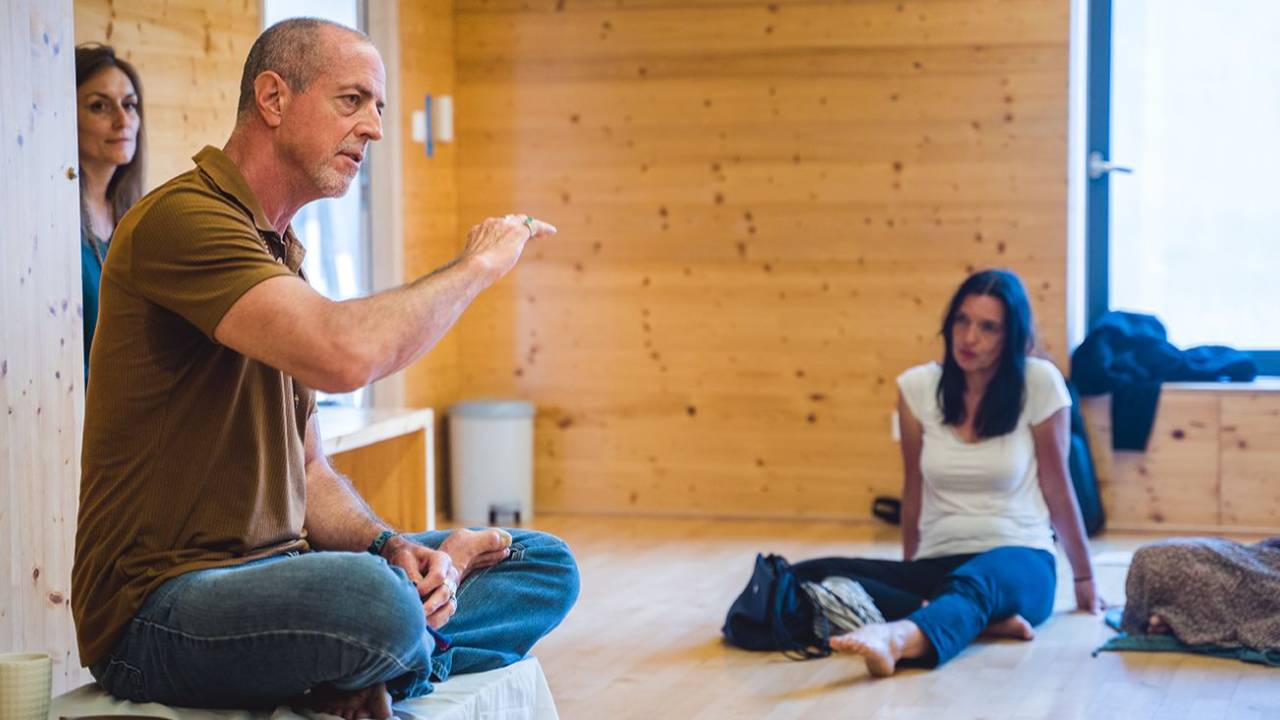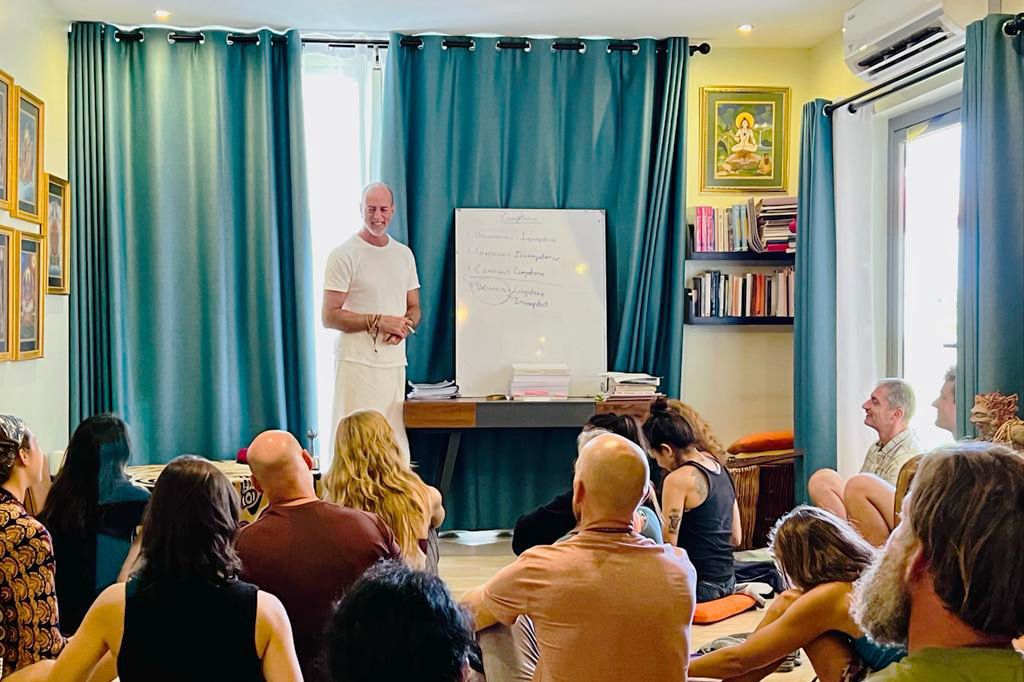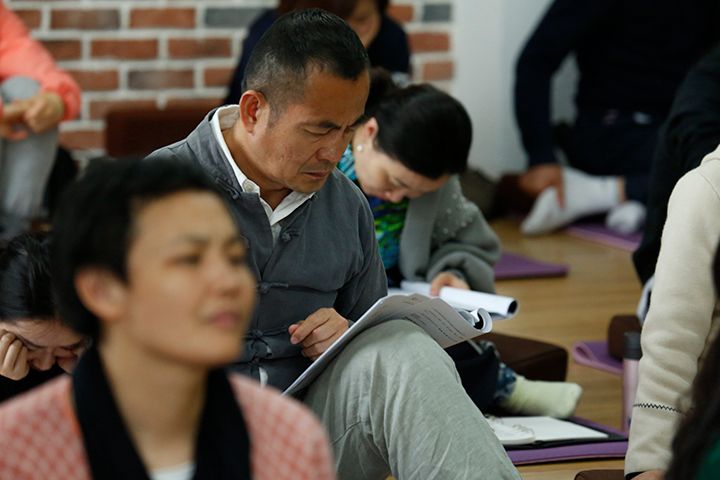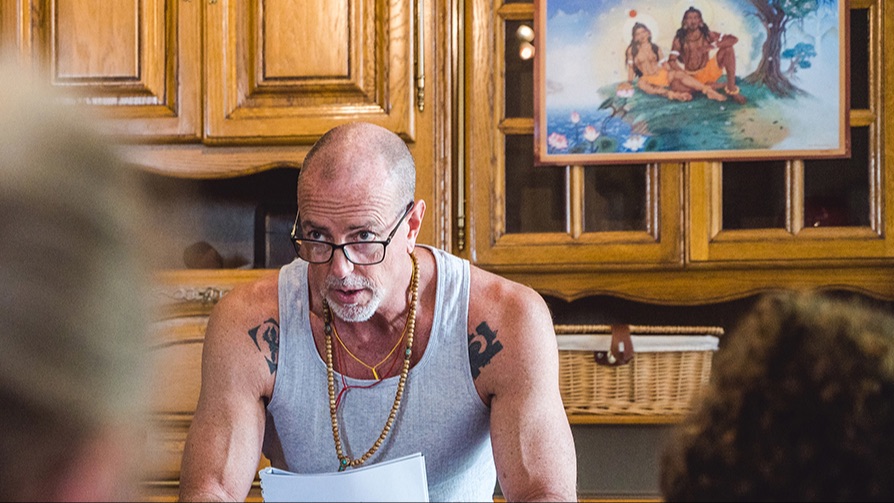Trauma & Enlightenment
A Tantrik Yoga Perspective
Do my traumatic experiences block my enlightenment?
...and therefore, do I need to process out every trauma stored in my body and consciousness before I can practice spiritual work?
Or…is it more the case that a spiritual practitioner can work the spiritual practices of the path while simultaneously processing through their traumas?

We need to clarify the relationship between our stored traumas and the spiritual path.
In ancient times the very act of living for 99.9% of the population of the world was what we would now call “traumatic”. Life expectancy was short, wars and genocide were common occurrences, famine and pestilence were a constant concern, and it was under those extreme circumstances that our present systems of spiritual work arose. In that early time-frame there was no emphasis on personal psychology, in fact the concept didn’t really exist.
Fast forward and now we are all saturated and reared in a psychology-based milieu - our “self” and its traumas have taken center stage. The result of the displacing our “spirit/soul/God” from the center of our life, and replacing it with our psychological sense of a permanent and valuable “self”, is having an immensely powerful impact on spiritual life. In general, we are seeing less and less amazing results from the traditional paths like Dharma and Daoism, even Judaism and Christianity. Why is this so?

One of the main reasons for this is that the traditional paths that gave the profound experience of enlightenment still haven’t yet figured out a way to integrate the “traumatized self” with the path of practice. Most hard core traditionalists will tell you to “just do the practices” and all that messy stuff of your psychology/traumas will sort itself out, or naturally fall away…revealing the “enlightened You”. But this type of spiritual bypassing never works.
And modernists often fail the student by demanding that all traumas be deeply valued and fully processed before following a spiritual path, but unfortunately all too often this becomes the new raison d’etre for the person and they never make it to core spiritual work. There always seems to be more to process, or they discover that they are too wounded or too oppressed by the traumas of life to get through them.
WHAT YOU WILL LEARN
This 4-hour class will take a deep dive into the topic and help you create a plan for dealing with any trauma you’ve had, no matter how severe or mild while still beginning the work of the spiritual path. It is a new era, and in this time we have more understanding of our minds and emotions and the necessity of integrating them into our spiritual path.
Join us for this informative class that will give you the tools to understand your unique situation regarding trauma and the path and how to create harmony between the two.
Therapists, social workers and spiritual teachers will also gain useful information and methods to add to their work.

DETAILS
Date:
Saturday, November 15, 2025
Time:
9 – 11am & 11:30am – 1:30pm (Maine, USA Time)
* Recordings will be available in our community platform if you are unable to attend live.
COURSE FEE
$105 / 1 class (4 hours total)
About the Teacher

Dharma Bodhi (Kol Martens)
Dharma Bodhi began practicing yoga at seven years of age. In his teens he moved into practices of Chan Buddhism and Daoism received through his Chinese martial arts teachers in New York. After completing his chiropractic degree he studied in an Oral-Practice Tradition of Non-Dual Śaiva Tantra, taking initiation into one of the Daśnami Orders of practice from India. In 1996 he completed ācārya training under his Śaiva gurus. This training emphasized traditional Kundalinī Hatha Yoga and a progressive system of Meditation, along with supportive studies in ritual/pūjā and yoga texts. Since graduating as a Śaiva ācārya, he took refuge with a great master of Bönpo Dzogchen meditation, and studied with him by taking multiple trips per year to his monastery in India for a period of 8 years. He studies both Dzogchen meditation & yoga (trul khor), and Dzogchen preliminary and advanced texts. Both his Śaiva and Dzogchen masters gave him the task of teaching these systems stripped of the unnecessary aspects of the cultures and languages they are found in. His Dzogchen master also gave him the task of translating two Tibetan texts. One of which is finished and the other is in process. He now lives with his wife, Sahaja Dakinī, and their two children in rural Maine, USA. He is developing a practice hermitage in the wilderness of Maine and a European teaching center on the border of Italy and Switzerland.

